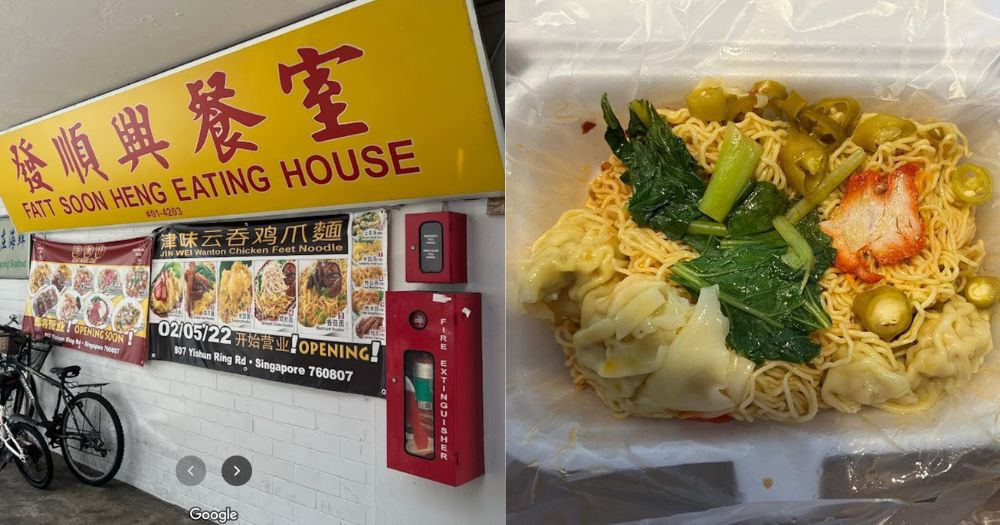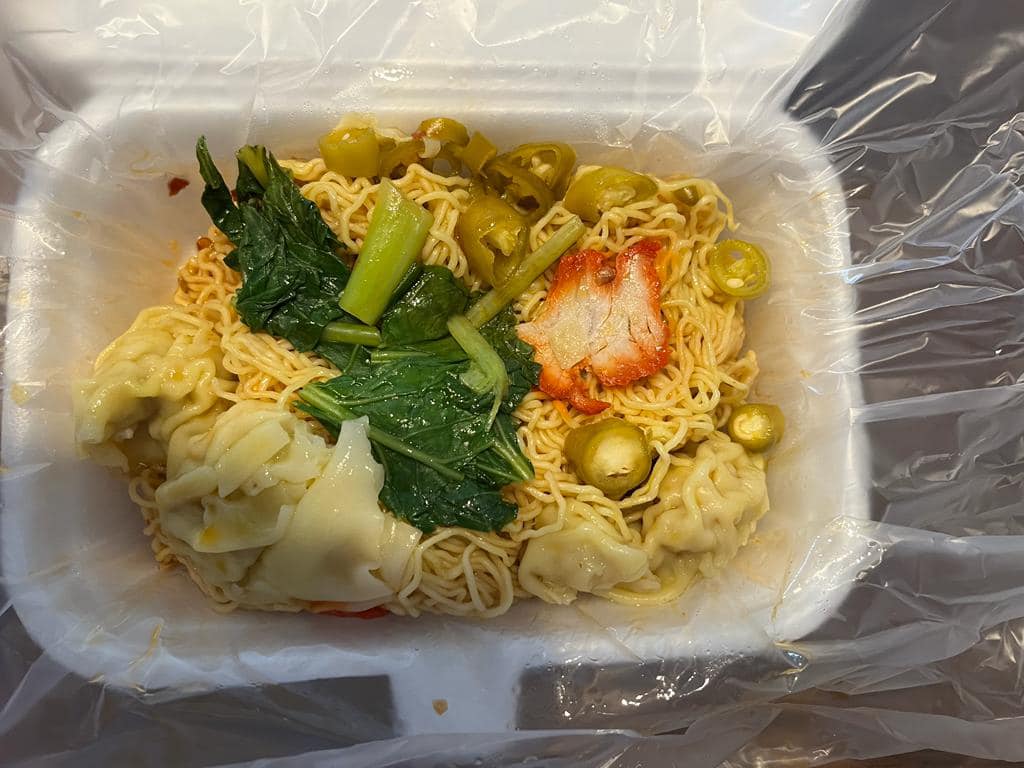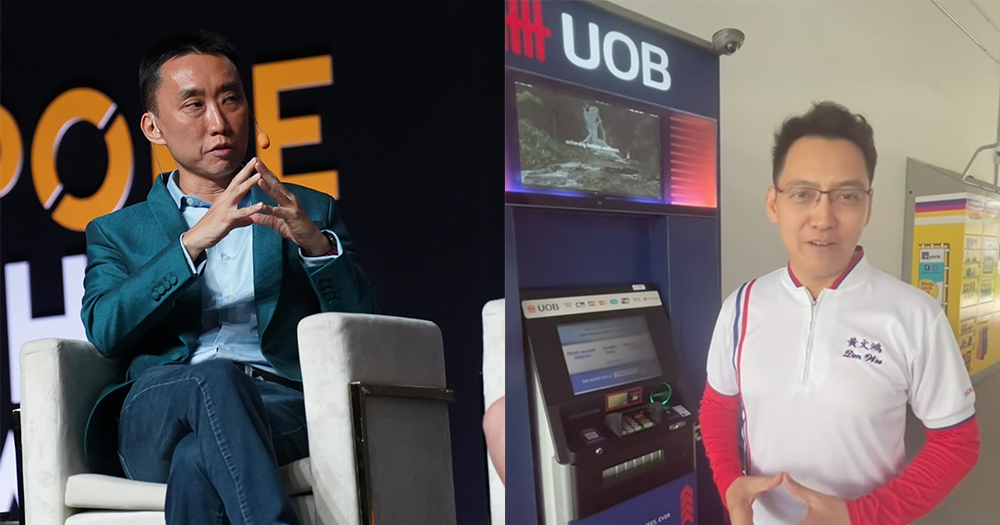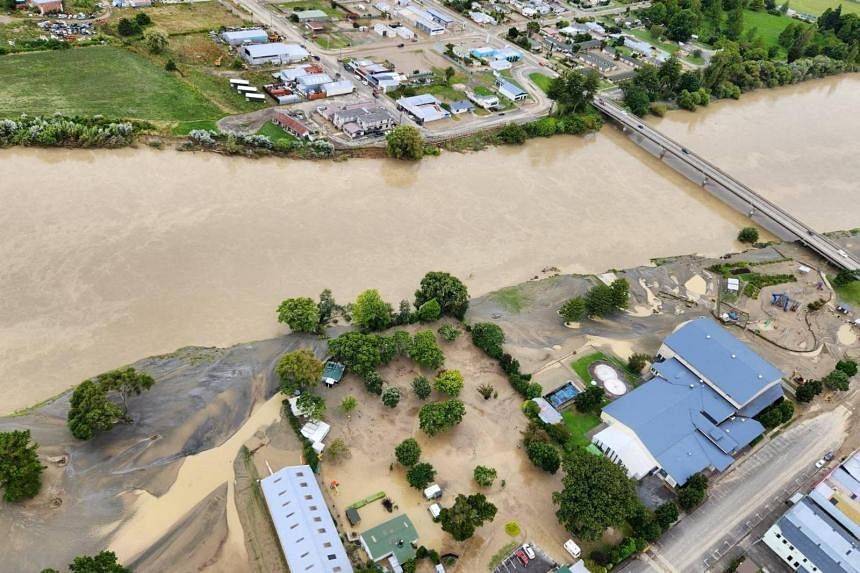Which female politician will be the next to screw Calvin? Chiobus Sun Xueling, Low Yen Ling? Or lau kway bus Amy Cheng, Denise Phua?
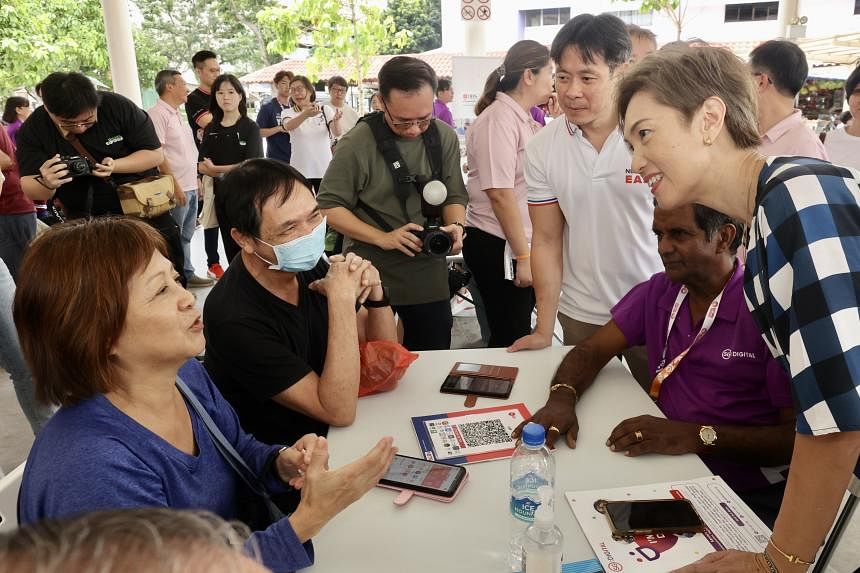
Communications and Information Minister Josephine Teo (right) at the E-Payment Learning Journey and Data for All Roadshow in Yishun on Sunday. PHOTO: LIANHE ZAOBAO
Andrew Wong
Feb 19, 2023
Even as 99 per cent of households in Singapore have internet access, and 92 per cent have computer access – not everyone will feel digitally included, Minister for Communications and Information (MCI) Josephine Teo said at a community event on Sunday.
Ms Teo was at Nee Soon East Seniors’ Hub in Yishun to attend the E-Payment Learning Journey and Data for All Roadshow.
Organised by Infocomm Media Development Authority’s (IMDA) Singapore Digital Office, Ms Teo met with IMDA’s Digital for Life partners supporting digital literacy and access for seniors.
She observed that if an individual, particularly a senior, does not have a certain level of digital proficiency, they will not be able to participate, or their participation will be shallow.
“Perhaps even more importantly, we need to pay some attention to digital efficiency,” she added.
Ms Teo said there are many digital services that seniors need to access, but time should also be given for them to pick up those skills.
“So the idea of digital first but not digital only, should be a central organising principle,” she pointed out.
The latest data backs Ms Teo’s statement. Last year, MCI conducted the Digital Readiness Survey across 2,000 Singaporeans. Participants were asked if digital technologies made their lives easier. Around 84 per cent agreed it made their lives easier.
Breaking down the data even more – 70 per cent of seniors in their 60s agreed that it made their lives easier. For those aged 70 and above, 62 per cent agreed with the statement.
The numbers start to fall, however, when it comes to applying the technologies in their lives.
The same group were asked if they are keen to try out new digital technologies. Only 49 per cent of those in their 60s were keen, while the number dropped to 41 per cent among those above 70 years old.
Some of the common challenges that seniors face include using smartphones for contactless payments.
The MCI survey showed 34 per cent of those in their 60s do not know how to use their smartphones for payments. Among those aged 70 and above, it rises to 60 per cent.
Another challenge more prominent among seniors is the ability to sieve through scams.
Nearly half of those in their 60s, and about 62 per cent of those 70 and above say they do not know how to cross check news and information.
“It is more significant,” said Ms Teo. “So that is probably another area of intervention that we could devote some attention,” she said.
But progress has also been made among the seniors in Singapore. Basic or higher digital proficiency among those in their 60s is at 44 per cent today, compared to 28 per cent in 2020.
Among those aged 70 and above, proficiency is at 17 per cent today compared to 14 per cent in 2020.
Ms Teo said: “They may not be as proficient as the general population, but the direction of change is very encouraging.”
While Singapore wants to be digital first because of the innovation potential and productivity angle, a digital only mindset would exclude a lot of people, said Ms Teo.
“I think we have to accept that the right and proper thing to do is not to be digital only,” she said, adding that it is a kinder and more tenable position for Singapore to take.
Ms Teo ended by saying of seniors: “When you meet them where they are, help them with design, help them with skills, then gradually they will get the hang of it.
“With the support of the community. I think they can become even more proficient and confident.”
S’pore should aim to be digital first, not digital only: Josephine Teo

Communications and Information Minister Josephine Teo (right) at the E-Payment Learning Journey and Data for All Roadshow in Yishun on Sunday. PHOTO: LIANHE ZAOBAO
Andrew Wong
Feb 19, 2023
Even as 99 per cent of households in Singapore have internet access, and 92 per cent have computer access – not everyone will feel digitally included, Minister for Communications and Information (MCI) Josephine Teo said at a community event on Sunday.
Ms Teo was at Nee Soon East Seniors’ Hub in Yishun to attend the E-Payment Learning Journey and Data for All Roadshow.
Organised by Infocomm Media Development Authority’s (IMDA) Singapore Digital Office, Ms Teo met with IMDA’s Digital for Life partners supporting digital literacy and access for seniors.
She observed that if an individual, particularly a senior, does not have a certain level of digital proficiency, they will not be able to participate, or their participation will be shallow.
“Perhaps even more importantly, we need to pay some attention to digital efficiency,” she added.
Ms Teo said there are many digital services that seniors need to access, but time should also be given for them to pick up those skills.
“So the idea of digital first but not digital only, should be a central organising principle,” she pointed out.
The latest data backs Ms Teo’s statement. Last year, MCI conducted the Digital Readiness Survey across 2,000 Singaporeans. Participants were asked if digital technologies made their lives easier. Around 84 per cent agreed it made their lives easier.
Breaking down the data even more – 70 per cent of seniors in their 60s agreed that it made their lives easier. For those aged 70 and above, 62 per cent agreed with the statement.
The numbers start to fall, however, when it comes to applying the technologies in their lives.
The same group were asked if they are keen to try out new digital technologies. Only 49 per cent of those in their 60s were keen, while the number dropped to 41 per cent among those above 70 years old.
Some of the common challenges that seniors face include using smartphones for contactless payments.
The MCI survey showed 34 per cent of those in their 60s do not know how to use their smartphones for payments. Among those aged 70 and above, it rises to 60 per cent.
Another challenge more prominent among seniors is the ability to sieve through scams.
Nearly half of those in their 60s, and about 62 per cent of those 70 and above say they do not know how to cross check news and information.
“It is more significant,” said Ms Teo. “So that is probably another area of intervention that we could devote some attention,” she said.
But progress has also been made among the seniors in Singapore. Basic or higher digital proficiency among those in their 60s is at 44 per cent today, compared to 28 per cent in 2020.
Among those aged 70 and above, proficiency is at 17 per cent today compared to 14 per cent in 2020.
Ms Teo said: “They may not be as proficient as the general population, but the direction of change is very encouraging.”
While Singapore wants to be digital first because of the innovation potential and productivity angle, a digital only mindset would exclude a lot of people, said Ms Teo.
“I think we have to accept that the right and proper thing to do is not to be digital only,” she said, adding that it is a kinder and more tenable position for Singapore to take.
Ms Teo ended by saying of seniors: “When you meet them where they are, help them with design, help them with skills, then gradually they will get the hang of it.
“With the support of the community. I think they can become even more proficient and confident.”

